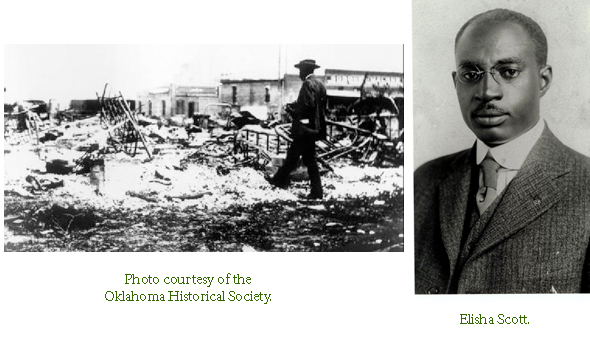News Release

|
Subscribe
|
Film and discussion with Thom Rosenblum, historian at Brown v. Board of Education National Historic Site.
July 17, 2011
3:00 p.m.
Free, reservations recommended
Producer, write, and director Michael Wilkerson reveals the unsettling story of the Tulsa Race Riot of 1921 in his documentary film, The Tulsa Lynching of 1921: A Hidden Story. The film, first released on Cinemax in May 2000, has received critical acclaim for its effective use of images, interviews with aging survivors of the riot, and with powerful voiceover readings of the riot by several well-known actors.
The riot began after an alleged assault by a young African American man on a white female, although many newly discovered accounts suggest the incident was little more than an accidental step on the woman's toes. White law enforcement officials deputized an additional 500 white men to enter into the Greenwood district of Tulsa, an all African American middle class neighborhood, and burnt it to the ground. By the time federal troops arrived to put down the uprising, over 300 African Americans were dead and over 1,200 homes were destroyed.
The aftermath of the Tulsa Race Riot found African Americans with rejected insurance claims against burned homes and redacted newspaper accounts in archival collections. The state and local governments made extensive efforts to suppress widespread reporting of the riot or removed records of it in historical accounts. African American attorneys like Elisha Scott of Topeka worked to resolve petitions by African Americans who lost homes and relatives to the riot.
The Tulsa Lynching of 1921: A Hidden Story will be followed by a brief discussion of the Topeka connection to the events through the Scott law firm by Thom Rosenblum, Brown v. Board of Education National Historic Site staff historian.
To RSVP by July 15, call the Brown Foundation at (785) 235-3939 or email by clicking here. Free and open to the public, Sunday, July 17, 3:00 p.m. at Brown v. Board of Education National Historic Site, 1515 SE Monroe Street, Topeka, Kansas 66612.
Last updated: March 31, 2022
